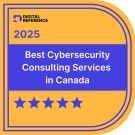GRC Solutions for SME's
Why Small Businesses Need a GRC Solution
Introduction
Smooth business operations can only be achieved by implementing the right policies. Therefore, we see companies of different scales formulating appropriate strategies to accomplish this objective. In spite of the fact that it has been an integral part of how businesses have been operating for years, Forrester introduced GRC as a tool in 2002 to counter growing disasters in the concerned domain.
.jpg?u=https%3A%2F%2Fimages.ctfassets.net%2Fbicx998lc6bb%2F1oF8RxX4Q5ivVeZerXyzgF%2Ff39617c7cef4523b6636769ff5e26b50%2FWhy-Small-Businesses-need-a-GRC-Solution-3__1_.jpg&a=w%3D88%26h%3D50%26fm%3Djpg%26q%3D100&cd=2024-03-05T22%3A38%3A25.388Z)
GRC (Governance, Risk, and Compliance) is, as the name suggests, a framework that ensures that a company's policies and strategies are aligned with managed governance and risk as well as compliance with industry standards and regulations. Companies, regardless of their size, can apply this framework to improve their decision-making processes, strengthen their internal controls, and demonstrate their commitment to responsive governance and ethical behavior.
Challenges Faced by Small Organizations
Despite the fact that the GRC model was originally designed to address the challenges of large organizations, its benefits are also apparent for smaller organizations. While you might be running a small business comprised of limited employees for the time being and don't feel the necessity to implement compliance policies, in reality, smaller companies also tend to have plenty of policies and risk management strategies to comply with. This particularly highlights small and midsize businesses (SMBs) with no dedicated departments to address compliance, risks, governance, and internal audits.
Hence, it is becoming imperative for companies to have mechanisms in place that allow them to navigate the complexities of changing regulations, technology, processes, and demographics. Modern businesses can't avoid challenges like:-
Given the challenges presented by the ever-changing business landscape, companies must have strategies in place to effectively navigate these complexities. Consequently, GRC offers a solution to achieve goals, reduce risks, and operate effectively in such an unpredictable business market. In fact, it is vital for small and medium-sized businesses (SMBs) to have robust GRC capabilities, as they are more vulnerable and less prepared to defend against cyber-attacks, business disruption from expected and unexpected incidents compared to larger, well-capitalized companies.
How Small Companies can Benefit from GRC?

The GRC framework not only solves governance, risk, and compliance challenges but also extends beyond resolving complex structures and ensuring smooth business operations. It provides a number of tangible and intangible benefits that can help organizations achieve their objectives. Some of the most notable advantages include but not limited to:-
Enhancing Cybersecurity Risk Management
Implementing a GRC system often leads to the automation of routine processes through the implementation of consistent monitoring controls, risk assessments, Key Risk Indicators (KRIs) and Key Performance Indicators (KPIs). Measuring and reporting your organization's cybersecurity posture and maturity.
Offers Integration & Data Insights
As a result of the integration capabilities of GRC solutions, employees gain a deeper understanding of the organization risks and controls, enabling them to make well-informed and strategic decisions. This creates a competitive advantage, trust in customers and growth for the organization.
Complying with industry regulations and laws to reduce Cyber Insurance Premiums
Laws and Regulations play a crucial role in several industries, from food standards to intellectual patents. Maintaining comprehensible and analyzable data aids in compliance with regulatory agencies and reduces legal exposure and cyber insurance premiums. Sustaining compliance minimizes the risk and lower your Cybersecurity Insurance Premiums.
Reduced Costs
A GRC program plays a key role in enhancing efficiency and reducing the costs of a business by bringing all risks and controls under one centralized platform and developing effective strategies to manage them.
Maintaining a safe and healthy work environment
Business environments require a safe and healthy work environment in which employees can work to their full potential. The same could be said for other connected stakeholders of your company. GRC can assist you by keeping records of incidents, which aids in identifying and addressing potential hazards, and reducing future risks. Implementing workers' compensation policies is necessary to support individuals in case of injury or illness in the workplace.
Complete Visibility & Management
Compared to conventional spreadsheets, GRC tools simplify collaboration for all stakeholders involved in the compliance process. They can also streamline project management capabilities by monitoring compliance activities, establishing deadlines, integrating task management, and maintaining an auditable record of progress.
Data & Security
Having different versions of a single spreadsheet across several machines not only results in inconvenience and ambiguity but also in verifying the latest information. Furthermore, this creates multiple vulnerabilities due to a lack of version control, leaving it susceptible to cybersecurity risks. On the contrary, GRC tools offer a more secure option, with encrypted data storage and secure data transfers ensuring the safety of your GRC data and process.
GRC Tools for Small Organizations
A GRC solution offers the capability of creating, coordinating, and aligning policies and controls with regulatory and internal compliance requirements while allowing for automation and reducing complexity. Additionally, they can evaluate the effectiveness of controls and enhance risk assessment and mitigation efforts. Different GRC solutions are available on the market at varying costs, and most of them are cloud-integrated. However, not every tool fits all needs. Before finalizing a GRC solution for your organization, you should really be looking at the business needs of your organization as well as the compliance and risk strategies. That being said, here are some notable options to pick from:
Conclusion
The GRC framework and solution offers a comprehensive set of best practices aimed at improving business security posture and operations. Although primarily designed for larger enterprises, small and medium-sized businesses (SMBs) can also reap the benefits of its streamlined, cybersecurity management and automated processes, leading to increased efficiency. Companies have the choice of various business tools to implement the framework based on their specific needs. By selecting the right tool and implementing it effectively, businesses of any size can fully leverage the benefits of the GRC framework.
Talk to a Cybersecurity Trusted Advisor at IRM Consulting & Advisory
Our Industry Certifications
Our diverse industry experience and expertise in AI, Cybersecurity & Information Risk Management, Data Governance, Privacy and Data Protection Regulatory Compliance is endorsed by leading educational and industry certifications for the quality, value and cost-effective products and services we deliver to our clients.










